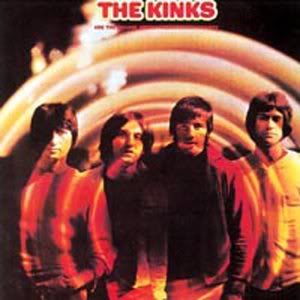
(RAY DAVIES IS) THE VILLAGE GREEN PRESERVATION SOCIETY
Early 1969. I’d read in Rolling Stone and Circus Magazine that a great album was soon going to be released. A yet untitled album by Crosby, Stills and Nash. Anxious to buy it, I headed to my local record shop at the mall to find it, to experience the new future of Rock. Unfortunately, the album was not yet released. Bummed out to the max, I strolled through the bins to find something else to buy with my few bucks. My eyes fell upon The Kinks, one of my fave bands during the British Invasion period. Very hip in those days. “You Really Got Me”. “All Day and All of the Night”. “A Well Respected Man”. My last record memory of them was an offbeat little single, “Sunny Afternoon”, a bawdy tune happening somewhere in an England that seemed like it was out of a Tennessee Williams’ play. “I got a big, fat mama trying to break me”. Ray Davies crooned as only he could. The bin held a Kinks Greatest Hits Album and one other. It wasn’t all hip looking like their Camaby Street days. But the title was interesting. “The Village Green Preservation Society”. Alright. I plunked down my cash, took it home and opened it up. In the middle of the album was a picture of The Kinks strolling through a lush English field of high grass. They were wearing casual clothes, not the styling duds they used to wear. But the words to the title song were printed on the back and they were brilliant poetry. I slapped it on my cruddy stereo and I’ve been playing it on vinyl or CD ever since.
What is its allure? Why does it call me back again and again? Quite simply because it’s a compelling album self-consciously desiring to Return to the Past. At that time, The Kinks were rejecting the Age of Aquarius and the “highly tuned vibes” that were supposed to set us free in the New Millennium about to dawn in the late Sixties. Now it speaks to the child in me that wants to get back to when I had no adult problems. It whispers to the adult in me who has been disappointed by the fortunes of life. It is so personal, a work with great powers of observation aimed at the changing world surrounding Ray Davies, a great songsmith too often overlooked, one of the Immortals who deserves to be mentioned with Dylan and Lennon/McCartney and Paul Simon and Joni Mitchell and ^____(please fill in the blank with a great one).
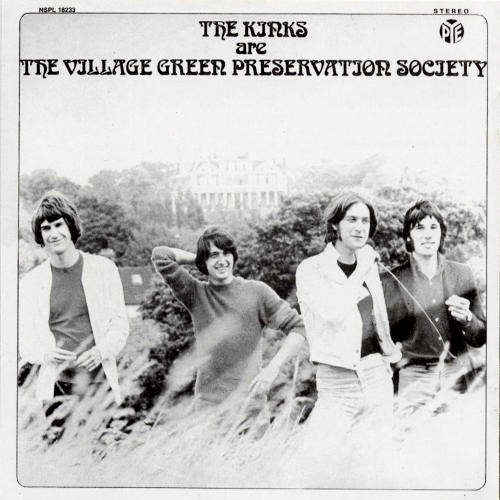
The title track really says it all. “We are the Village Green Preservation Society/ God save Donald Duck, vaudeville and Variety”. The village green, the heart of every traditional rural town, is the symbol of what is good and normal and human, not the sly, wicked, dehumanizing ways of the Big City. “We are the Skyscraper Condemnation Affiliate/ God save Tudor houses, antique tables and billiards”. But even Ray does not want a reactionary return to all aspects of the Good Old Days. “Preserving the old ways from being abused/ Protecting the new ways for me and for you/ What more can we do?” Ray enjoys aspects of the new freedoms creeping into English society, but at the same time he is damn scared that What is Good will be lost in the rush to a Brave New World.
Then there is “Walter”. The childhood friend who now lives a complacent, boring adult life. “Walter, remember when the world was young and all the girls knew Walter’s name? Walter, isn’t it a shame the way our little world has changed… I bet you’re fat and married and you’re always home in bed by half past ten.” This is Davies’ longing not for the societal past but for his personal past. the world of teen crushes and sneaking cigarettes and trying to stay out late for youthful adventure. The excitement of that phase has not been translated into an adult form in Walter’s life, but Ray observes with some consolation, “People often change/ But memories of people can remain”. A wonderful, spritely piano effortlessly carries the tune along.
The polar opposite of Walter is “Johnny Thunder”, a working class stiff who’s not lost his gift for living with some swagger, some “joie de vivre”. He’s the type to tell tall tales in the pub, holding a pint in one hand and a good cigar in the other. Johnny “feeds on lightning”, having no fear as to what adulthood means because he will, in some way, remain an eternal child, not a man to be dragged down by the conformist moralists in town. The broad strumming of the guitars is bold and exclamatory, nothing timid for good old Johnny. I always smile when 1 hear the song. I’ve known a few Johnny Thunders in my day.

But title album is not all about nostalgia. “Big Sky finds Ray examining religious issues. In a grand tune featuring tasty harpsichord licks, he lets himself wax philosophical about God and we puny humans down below. Davies’ deity is distant, not needing to get involved in the affairs of mortals. “Big Sky feels sad when he sees the children scream and cry/ But Big Sky’s too big to let it get him down… Big Sky’s too big to cry/ Big Sky’s too high to see/ People like you and me”. However, Ray has somewhat mixed feelings about Big Sky. “When I feel that the world’s too much for me/1 think of the Big Sky and nothing matters much to me”. Does the sense of grandeur and immensity of even an uninvolved deity give Ray some sense of peace? As with most great writers, he doesn’t really spell it out. He just rolls with his emotions and we roll along with him. He even speaks of a future where everyone will be happy, but is it a socialist Utopia or a spiritual community or just a shared state of mind (perhaps not needing Big Sky)? Again, we are left to figure it out for ourselves.
In “Starstruck” Davies is trying to wise up a girl \\ he’s “taken in by the lights” of fame and the social whirl and the evils of the Big City. He warns her that she’s even “Starstruck on me”. Don’t look too closely at me, he seems to say, or else I’ll just let you down like everybody else you’ve ever known. I read an article featuring Davies in the 1990’s where he stated that he disliked meeting diehard fans who were musicians because he had always been let down when he had met his own heroes. Did Chrissie Hynde really listen to “Starstruck” back in Ohio, years before she became a devotee of Ray’s and then his onetime lover? Probably not.
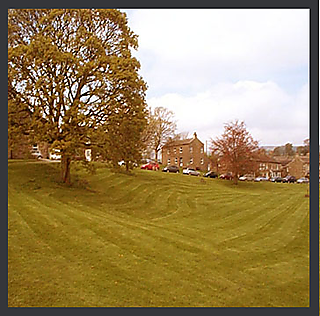
Davies also delves into the world of fantasy, much like the fantasia of children’s books. The “Phenomenal Cat” is practically out of Alice in Wonderland, a wise, fat feline who has traveled the world, “to Katmandu, the city in the Sahara too”. Once he had found the Secret of Life, he renounced his quest and vowed to peaceably eat fine foods into Eternity. The innocent mood of the tune comes across as a precursor to the playful music of Cat Stevens. The other fantasy is “Wicked Annabella”, the only song where the Kinks use “heavy” guitars and Mick Avory puts in a tasteful 1969ish drum solo. Remember those childhood fears about the ugly old lady who lived at the edge of town in a ramshackle house? The one who you and your friends thought might be a witch? That is Wicked Annabella, scary and humorous all at the same time. She haunts the sky and controls little demons in the forest who will drag naughty children away. Don’t disobey your parents or Annabella will get you, child.
“People Take Pictures of Each Other”, the fifteenth and final song, is to me the second most important song after the title track. Human memory can fail, it can fade, but photos trap that moment in reality forever. “People take pictures of each other/ Just to prove that they really existed”. In an unrelentingly catchy sing-along, Davies gives us a litany of pictures and people and events from the past, but then he sings a painful phrase, “Don’t show me no more, please”. To see the past can bring up many unpleasant feelings. Regret. Loss of loved ones. Loss of innocence. How the present is not all that happy. But also the slight twinge that maybe things in that Golden Past were not all that great either.
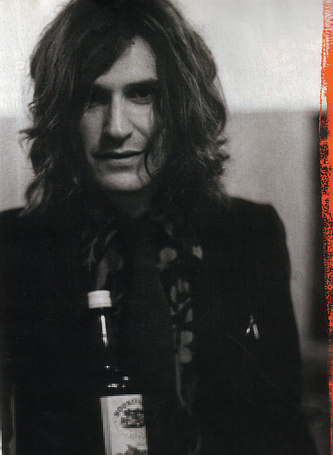
Wonderfully produced and played, one instrument stands out as the string that holds every track together – the voice of Ray Davies. In his idiosyncratic, iconic voice. Ray’s phrasing and emotions run the gamut. Wistful. Tongue-in-cheek humorous. Sad. Raucous. Rocking. Folkie. Optimistic. A bit bewildered. At times, he seems the epitome of the British music hall performer with his put-on delivery. But all of his moods reel me in to the song and its emotions. What more can a singer do?
Great album. Great band. But Ray Davies really is The Village Green Preservation Society all by his lonesome self.
++++++++++++++++++++++++++++++++++++++++++++++++++++++++++++++++++++++++++++++
MY PICTURE BOOK
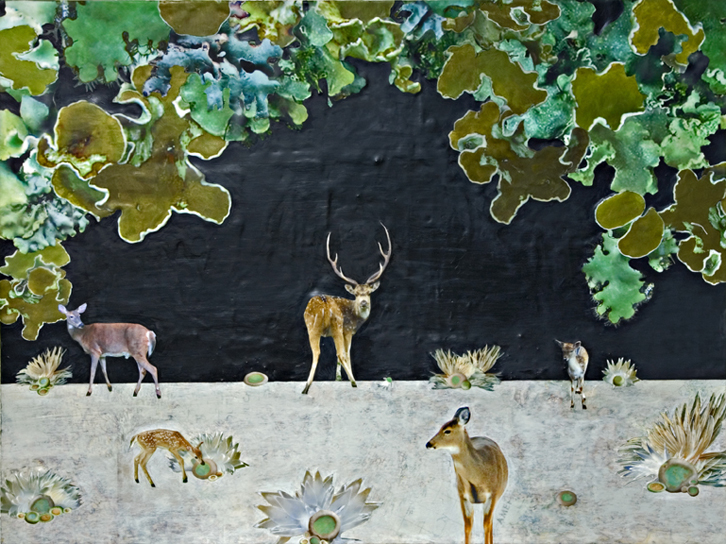
Gary K Nomeland, you sentimental old frog… you are absolutely right! Village Green Preservation Society is Ray Davies and the other way around. I keep coming back to why this album meant so much to me in 1968 and means more to me today. I think it comes down to the essence of all music; audience and authors need escape. Ray Davies wanted to escape from writing hits, and accomplished this quite well with this collection. Wonderboy was the failed single. I wonder is Animal Farm was not a better choice. But no matter. Davies was looking to write small and create a much more personal album. Bands hate that! But it was such an escape to all these little worlds: china shops, a backyard booze fest, churches, oak trees, and a bed and breakfast in sunny southend…
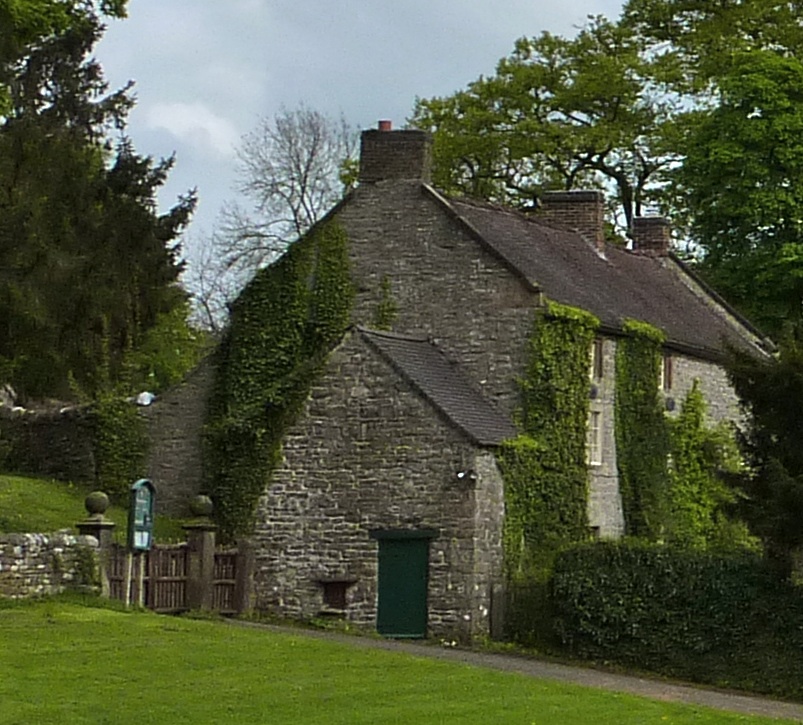
As a kid in our faceless Colton, California, I loved the English bands because they hailed from this exotic rock land that was England. When I first heard the album at Bob Kjorvestad’s house, I escaped to that countryside where “the sky was wide.” Davies was better than Lennon and McCartney at painting the small details for this world, and calling me in. Escape! The whole album called the listener to leave the humdrum modern life for the vibrant natural world:
It’s a quiet, quiet life
By a dirty old shack
That we called our home
I want to be back there
Among the cats and dogs
And the pigs and the goats
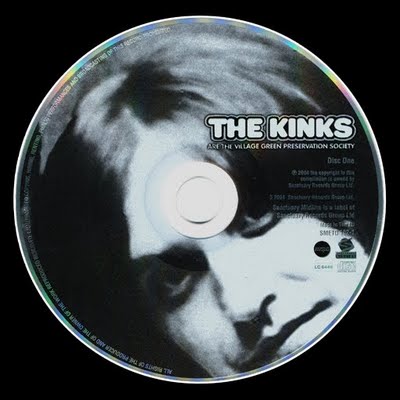
I am not sure why this was so appealing. I think it has to do with the transformation of the listener in song. If the song connects, the listener goes somewhere else. This is not elevator music that only distracts. It is meant to move you all round, like an elevator that left the building. As Bob and I listened to the album in numerous spins we dreamed about the England of the Beatles and Stones and soon to be the England of Cream, the England of Traffic. We dreamed of colors we didn’t have back home.
Yes people often change, but memories of people can remain.
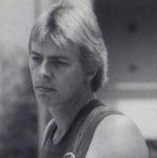
This line from Do You Remember Walter? popped out to me at the time. I remember wondering about Bob and me in the future. Here we were as best buddies listening to the best music in the world, but what would keep this moment alive? I thought we would both grow up to be musicians. We did. But our pathways lead us separate ways and the music that was supposed to glue us together stopped for Bob five years ago. A train crossing through town killed him. Such are things that color our dreams. So I am here with those memories and the first chords Bob Kjorvestad left me, and the melodies, words and chords and images Ray Davies gave me so many years back. For me, Village Green Preservation Society is not about harkening back to early years and nostalgia, it was my chance to see past my gray hometown to the world of song. I could escape to Davies’ scenes and songs with the hope that I would learn one day to write a song of my own and
Cash my ticket to the other side…
Chris LeRoy

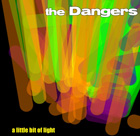
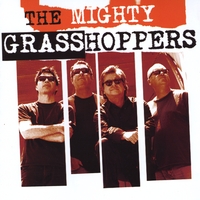
Well done Chris… they mention a topic I can get fully behind:
“We are the Draught Beer Preservation Society”
He wrote it for you, Garod
Great album, great writeups. I think I’ll listen to it on my way to the Tire Fire show tonight!
Go forth master morst
PEOPLE ALL OVER THE WORLD
JOIN HANDS
JOIN THE KINKS TRAIN!
KINKS TRAIN!
GET WITH IT SONGBOOK HIGHWAY-ERS
GET INTO THE KINKS! BUY KINK KRONIKLES… 1970′S KINKS GREATEST HITS… 1980′S KINKS GREATEST HITS…
JOIN THE KINKS TRAIN!
Thanks to your post I do not look like an idiot. I had an argument with my wife and this shows I was right. Thanks!
Glad to be of help but what pray tell was the argument?
Thank you so much for this Chris. I really loved Bobby. I am so sorry that I didn’t look for him before this.
Mary Ellison
Mary, Thank you for remembering Bobby… Chris